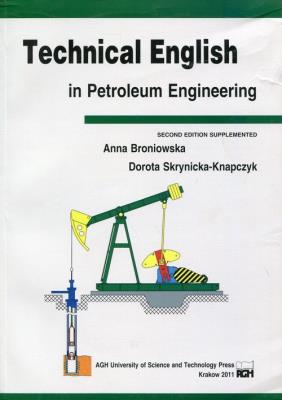Technical English in Petroleum Engineering is intended for intermediate and higher-level students of technical colleges and universities, as well as their instructors, who wish to learn or improve their technical vocabulary used in petroleum engineering. It is meant as a coursebook for a one-semester course (approximately 45 teaching hours) for students who possess an intermediate knowledge of English (level B1 or higher). The fi eld of oil engineering, as any specialized profession, requires specialists and technical workers whocan effectively communicate in English and who possess a thorough knowledge of their professional jargon. The aim of this book is to facilitate the acquisition of the language structures and vocabulary specific for the oil industry. Certainly, the book as such is not an engineering text, nevertheless the selection of the reading materials is a representative review of the basic technical aspects of the fi eld. Thus, the language learning offered in our book is closely related to various practical aspects of oil engineering. The book consists of 17 chapters, each comprising a selection of source texts and a number of dedicated exercises whose aim is to practise the lexical items and use the acquired vocabulary in practical contexts. A glossary of technical English terminology used in petroleum engineering is supplied at the end for the readers convenience. It was highly diffi cult to provide all the possible translations for many lexical items thus the authors have chosen the most suitable equivalents for the words used in the texts. We also provide answers to selected exercises. The coursebook has the following graphic code: the selected source texts are in blue frames, the lexical exercises are in green, while the orange frames are intended for the students own notes.



